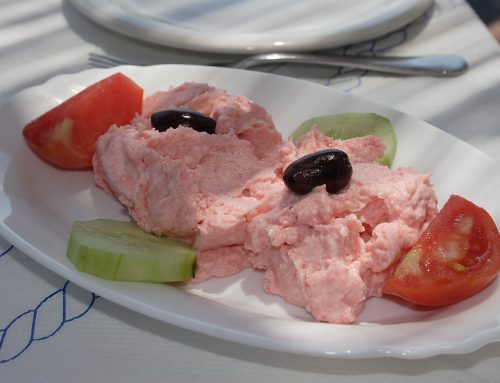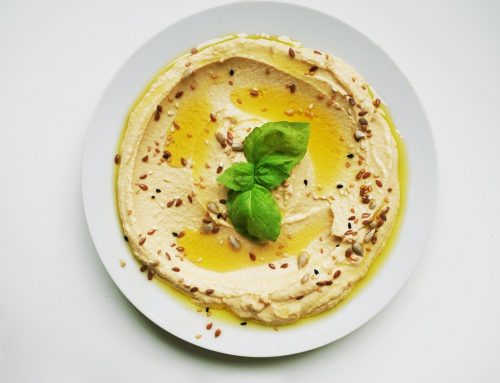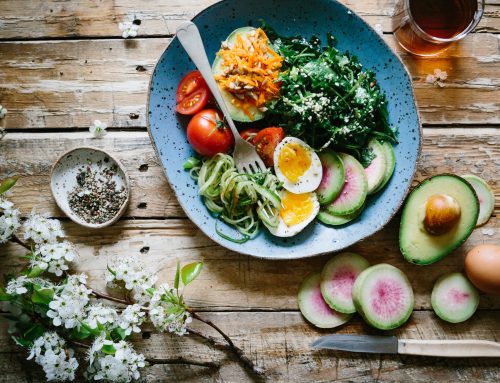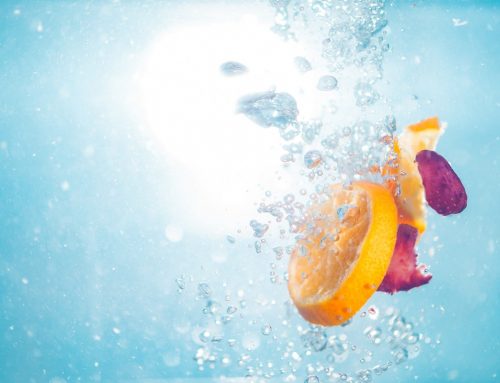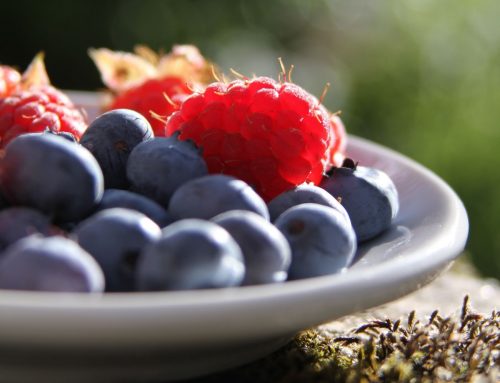Perfect as a snack or a main dish, cranberries are a low-key nutrient powerhouse. With just 50 calories and only 4 grams of sugar per cup, these berries are low in calories and sugar, especially when compared to other fruits.
There are a bunch of other health benefits of eating cranberries that will have you wanting them way more than just on Thanksgiving Day.
What are the health benefits of cranberries?
One cup has roughly 4 grams of fiber, loads of antioxidants (including vitamins A and E), and is a good source of vitamin C, a crucial antioxidant to protect cells from damage and to boost collagen production, helping with wound healing and skin integrity.
A cup of this festive fruit contains just four grams of naturally occurring sugar per one whole cup of fruit. Thanks to their red-purple pigment, cranberries contain polyphenols, a type of antioxidant class linked to reduced risk of chronic disease. What’s more, the metabolites of cranberry polyphenols have a unique set of functions unto themselves: In addition to helping protect your body’s cells from damage (and therefore reducing risk of oxidative stress which can lead to chronic inflammation over time), some research has linked the specific role of certain cranberry polyphenols to reducing risk of stomach cancers and bacterial infection.
Cranberries also pack nearly 20% of your daily value of vitamin C, and contain a myriad of antioxidants in the form of polyphenolic compounds (found in abundance in most veggies and fruit, especially ones with deep red and purple hue) which, when metabolized, form new bioactive compounds that may help with gastrointestinal health and immunity overall. As a fruit, cranberries also provide prebiotic fiber, which provides fuel to your body’s probiotics, beneficial bacteria found in your GI tract (and other tissue lining) called microbiome, the layer that serves as the first line of defense to your immune system.
Additionally, thanks to their antioxidant content, cranberries may help reduce risk of chronic disease by reducing oxidative stress by way of chronic inflammation. While all foods high in antioxidants help to improve blood flow through blood vessels (therefore lowering blood pressure over time), protect cells from harmful damage (reducing risk of inflammation or from tumor growth), and reduce the risk of cholesterol buildup in your arteries, they’re a great choice to include as part of an overall healthful diet. That said, since they’re high in vitamin K, a nutrient that helps regulate blood clotting, be sure to check with your doc before sprinting out to the cranberry harvest, since large amounts of vitamin K can interfere with medications you may be taking for heart health.
Are dried cranberries good for you?
Nope — fresh or frozen are typically best when it comes to almost any fruit or veggie. That’s because the drying process concentrates the sugar contained within the fruit or veg itself, increasing the sugar content overall while diminishing the water and fiber content. Cranberries are even more sugary than most, thanks to their naturally tart flavor — because they’re often sour to taste, they’re almost never dried without any added sugar, though you can find brands making versions with sugar substitutes. A standard serving (1/4 cup) packs about 20 grams per serving (for reference, the American Heart Association recommends that women keep added sugar intake to 24g per day.) The processing of cranberries also reduces the antioxidant content as well as the fiber content of the fruit, so you’re better off using these for flavor than for any perceived health benefit.
Is it safe to eat raw cranberries?
It’s ideal to buy fresh, raw cranberries when they are in season (September and October months). They can be refrigerated or frozen for later use. The skins contain many of the beneficial properties, so your best bet is to add ’em whole to cereals or oats, blend into a smoothie, or use them in cooking and baking when you’re after a tart flavor.
Does cranberry juice really help get rid of a UTI?
Besides the power of a placebo effect, sadly cranberries nor cranberry juice can rid you of a UTI. That’s because it would require a very high concentration of cranberries to prevent bacterial adhesion, ultimately ridding your body of the infection altogether and nixing the inflammatory response caused by such an infection. Since juice itself is distilled down to water and cranberries, it’s tough to even come close to the recommended amount of PAC’s to have a healing effect. Remember: Eating whole, fresh cranberries, too, have been shown to reduce the risk of getting a UTI, but not actually helping to treat it.
Source: Good House Keeping

